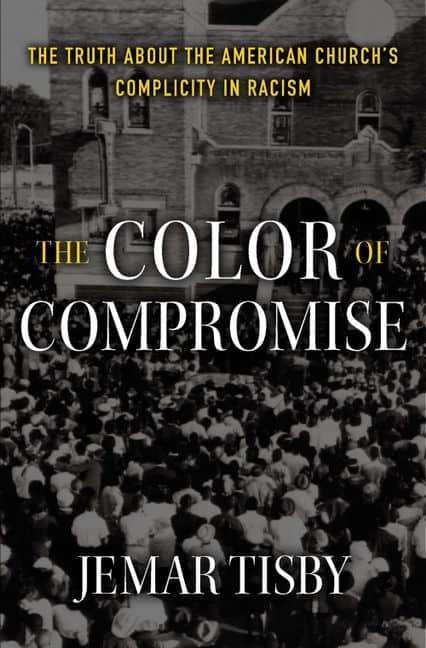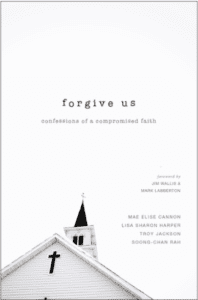
Be sure to catch the recording of CSA’s Facebook Live with Jemar Tisby at the end of this piece!
While many Christian traditions and other religions have varied and valuable narratives, Protestants, especially evangelicals, have written some of the most well-known narratives of racism in the United States. Other religious groups, such as white Catholics, have certainly contributed to racism, but the narrative that unfolds in the following pages focuses on Protestant churches. Methodists, Baptists, and Presbyterians all have a central, sometimes repressive, place in the story of race in America. No matter which faith tradition or denomination is at the forefront of discussion, racism extends across sectarian lines.
What do we mean when we talk about racism? Beverly Daniel Tatum provides a shorthand definition: racism is a system of oppression based on race. Notice Tatum’s emphasis on systemic oppression. Racism can operate through impersonal systems and not simply through the malicious words and actions of individuals. Another definition explains racism as prejudice plus power. It is not only personal bigotry toward someone of a different race that constitutes racism; rather, racism includes the imposition of bigoted ideas on groups of people.
In light of these definitions, it is accurate to say that many white people have been complicit with racism. Although there have been notable exceptions, and racial progress in this country could not have happened without allies across the color line, white people have historically had the power to construct a social caste system based on skin color, a system that placed people of African descent at the bottom.
White men and women have used tools like money, politics, and terrorism to consolidate their power and protect their comfort at the expense of black people. Christians participated in this system of white supremacy—a concept that identifies white people and white culture as normal and superior—even if they claim people of color as their brothers and sisters in Christ.
White complicity with racism isn’t a matter of melanin, it’s a matter of power. Other nations have different dynamics. Whether society is stratified according to class, gender, religion, or tribe, communities tend to put power in the hands of a few to the detriment of many. In the United States, power runs along color lines, and white people have the most influence.
In the United States, power runs along color lines, and white people have the most influence.
Historically speaking, when faced with the choice between racism and equality, the American church has tended to practice a complicit Christianity rather than a courageous Christianity. They chose comfort over constructive conflict and in so doing created and maintained a status quo of injustice.
Given the history, complicity is a weak word for describing how American Christianity has often interacted with race. As historian Carolyn DuPont describes it, “Not only did white Christians fail to fight for black equality, they often labored mightily against it.” Complicity connotes a degree of passivity—as if Christianity were merely a boat languidly floating down the river of racism. In reality,
white Christians have often been the current, whipping racism into waves of conflict that rock and divide the people of God. Even if only a small portion of Christians committed the most notorious acts of racism, many more white Christians can be described as complicit in creating and sustaining a racist society.
By surveying the church’s racist past, American Christians may feel the weight of their collective failure to consistently confront racism in the church. This should lead to immediate, fierce action to confess this truth and work for justice. Then, perhaps, Paul’s words to the Corinthians might ring true for today’s church: “As it is, I rejoice, not because you were grieved, but because you were grieved into repenting” (2 Corinthians 7:9 ESV).
Progress is possible, but we must learn to discern the difference between complicit Christianity and courageous Christianity.
Progress is possible, but we must learn to discern the difference between complicit Christianity and courageous Christianity. Complicit Christianity forfeits its moral authority by devaluing the image of God in people of color. Like a ship that has a cracked hull and is taking on water, Christianity has run aground on the rocks of racism and threatens to capsize—it has lost its integrity.
By contrast, courageous Christianity embraces racial and ethnic diversity. It stands against any person, policy, or practice that would dim the glory of God reflected in the life of human beings from every tribe and tongue. These words are a call to abandon complicit Christianity and move toward courageous Christianity.
Jemar Tisby (B.A., University of Notre Dame, Mdiv Reformed Theological Seminary) is the president of The Witness, a Black Christian Collective where he writes about race, religion, politics, and culture. He is also the co-host of the Pass The Mic podcast. He has spoken nationwide at conferences and his writing has been featured in the Washington Post, CNN, and Vox. Jemar is a Ph.D. candidate in History at the University of Mississippi studying race, religion, and social movements in the twentieth century, and author of The Color of Compromise: The Truth About The American Church’s Complicity In Racism, from which this excerpt is taken with permission from Zondervan.
JOIN US! We're talking with author and historian Jemar Tisby about Racism and the Church.
Posted by Evangelicals for Social Action on Wednesday, March 13, 2019


